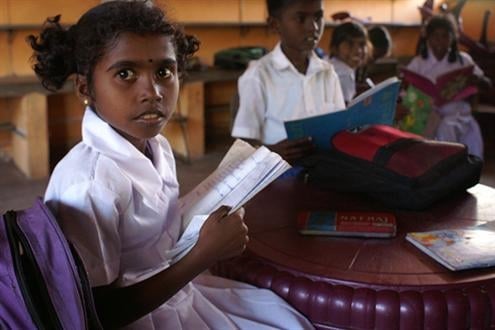“In developing countries people are not interested in aid commitments; they want to know about projects and activities. It’s about execution, not allocation,” Owen Barder, director of aidinfo, a programme of NGO Development Initiatives, told IRIN.
“Where’s the money? Who got paid? Where is the school? Existing data donors collect is not designed to answer these questions… The Malawian health authorities, for instance, need to know who is funding what in health so they can make their own spending decisions.”
Each aid commitment goes through an average of six contractual agreements, according to research by the UK-based Overseas Development Institute’s Edward Clay, which can complicate tracing.
But Karin Christiansen, head of the NGO Publish What You Fund (PWYF), told IRIN finding out the details should not be that hard. “The figures are there, it’s just about contract disclosure. Tracing aid is not as hard as you think. Contracts should always tell you who is the next link in the chain.”
The devil lies in the detail, says Owen Barder, referring to the UK members of parliament 2009 expenses scandal. “If we’d only based our knowledge on the results [the overall figures they reported], and not tracked the details of who spent what, where, we wouldn’t have known people were flipping houses for money... it’s the detail that mattered.”
A March 2010 study by Claudia Williamson at New York University estimates on average 17 percent of donor spend goes on administration fees.
Common aid disclosure standards
The International Aid Transparency Initiative (IATI) - made up of the UN Development Programme, Development Initiatives and the UK’s Department for International Development (DFID) - is working with donors to agree a set of common standards for aid disclosure. “Governments should feel compelled to do this for freedom of information reasons alone,” said Barder.
The development community can look to the private sector for inspiration, Christiansen said. “Companies have standardized their accounts for years - they’re all using a common language; we are not as advanced as other financial markets.”
But common reporting is a complicated task, says a donor representative who chose to remain unnamed, because it involves everyone. “What we need is a system that works across different donors. DFID might give to the World Bank, which might give to an NGO, which might give to a local NGO, so we can’t achieve traceability by one donor working alone.”
For that reason, the soonest she expects to see a workable tracing system in place is at the end of 2011.
Three things need to improve to make this happen, according to Barder. Donors need to: build up the ability of governments in developing countries to demand better disclosure and to create their own generic coding for aid received; give more support to organizations that analyze aid information; and standardize their own data disclosure.
But Rigoberto Giron, associate vice-president for strategic initiatives at NGO CARE, told IRIN NGOs will also need to build their capacity to publicly report every step of their spending. Most NGOs currently report back to institutional donors, foundations and large private donors, but do not disclose details of transactions to the public.
“The exact breakdown is not now disclosed publicly but if anyone comes in we’ll tell them,” he told IRIN.
aj/cb
This article was produced by IRIN News while it was part of the United Nations Office for the Coordination of Humanitarian Affairs. Please send queries on copyright or liability to the UN. For more information: https://shop.un.org/rights-permissions
